
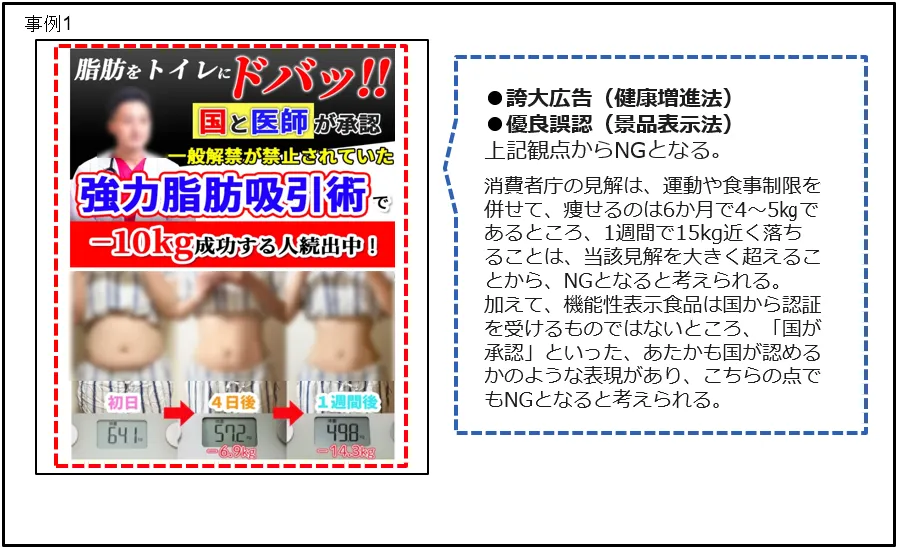
New Survey Reveals Frequent Violations in Advertising Practices Under Pharmaceutical Laws in Japan
Addressing Pharmaceutical Advertising Violations in Japan
In a recent study conducted by REGAL CORE, a company dedicated to monitoring compliance with pharmaceutical regulations, alarming results have surfaced regarding advertising practices in Japan. The focus of this investigation was on the distribution of article landing pages (LPs) that could potentially infringe on pharmaceutical laws and standards set out by the Pharmaceutical and Medical Devices Agency (PMDA) and the Act Against Unjustifiable Premiums and Misleading Representations (景品表示法). This ongoing research, which spans from April to May 2025, aims to safeguard consumers by examining the nature of advertising expressions found in various web media.
Research Methodology
The survey conducted involved a thorough examination of randomly selected web media, particularly focusing on the recommended widgets that featured ads for products captured in article LPs. REGAL CORE meticulously evaluated the promotional language used in these ads against the relevant regulations to identify any problematic expressions that could deceive consumers. Each reporting period spans two weeks, during which multiple web media sites are monitored for compliance with the stipulated laws.
Findings and Examples
The latest findings indicate that issues raised in previously reported surveys persist. Numerous instances of advertisements containing expressions that could be construed as violations have been gathered, with particular trends emerging. Below are summarized examples of the phrasing that raises red flags:
Health Foods and Misleading Claims
Many ads for health foods have employed medical efficacy claims that go well beyond legally permissible boundaries. Examples include:
1. Phrases such as "boosts female hormones", suggesting medicinal effects that imply breast enhancement.
2. Claims like "detoxifying effects" or "prevents oxidation of the body" mislead consumers about the true benefits of the products through exaggeration.
3. Phrases promising extreme weight loss results, such as "lose 13.1 kg in two weeks", further perpetuate unrealistic expectations.
Functional Foods
Ad assessments reveal that some products classified as functional foods exaggerate their capabilities. For instance:
- - Claims that suggest sharp eyesight without the need for glasses mislead consumers on functional benefits.
- - Advertorial language implying significant metabolic improvements are often unsupported by scientific evidence, demonstrating a disconnect from reality.
Cosmetic Products
Cosmetics, including medicinal cosmetics, were not immune from scrutiny. Advertising claims that crossed legal bounds include:
1. Phrases suggesting results like "permanent hair removal" or "skin regeneration effects" misrepresent the product's effects.
2. Language promoting significant anti-aging results without proper substantiation can lead consumers to false beliefs regarding effective outcomes.
3. Claims implying instant effects from beauty products, like "eliminate wrinkles instantly", fall into the realm of misleading practices.
Ongoing Commitment to Compliance
Since August 2022, REGAL CORE has been committed to refining its research methods to uphold advertising standards in compliance with legal frameworks. Some businesses have already begun to amend their practices following prior notifications regarding misleading advertising. The organization plans to continue monitoring these advertising expressions and will adapt its reporting as new information becomes available, ensuring that regulations serve to protect public interests.
As we delve deeper into the world of advertising regulations, the aim is clear: to foster an environment of transparency and integrity in product representation, while concurrently empowering consumers with truthful information.
Conclusion
The ongoing evaluation of advertisements under pharmaceutical laws paints a concerning picture about the standards of marketing practices in Japan. Companies must remain vigilant about compliance and strive for accuracy and honesty in their promotional content, prioritizing consumer trust and safety above all. REGAL CORE stands as a guardian of these regulations, continuously advocating for improved practices that protect consumers from unsubstantiated claims.
Company Information
Company Name: REGAL CORE Co., Ltd.
CEO: Hayato Tanoe
Location: 9th Floor, A-PLACE Ebisu Higashi, 3-13-11, Shibuya-ku, Tokyo
Established: 2021
Business Activities: Legal check services
Capital: ¥38,490,000
Website: REGAL CORE
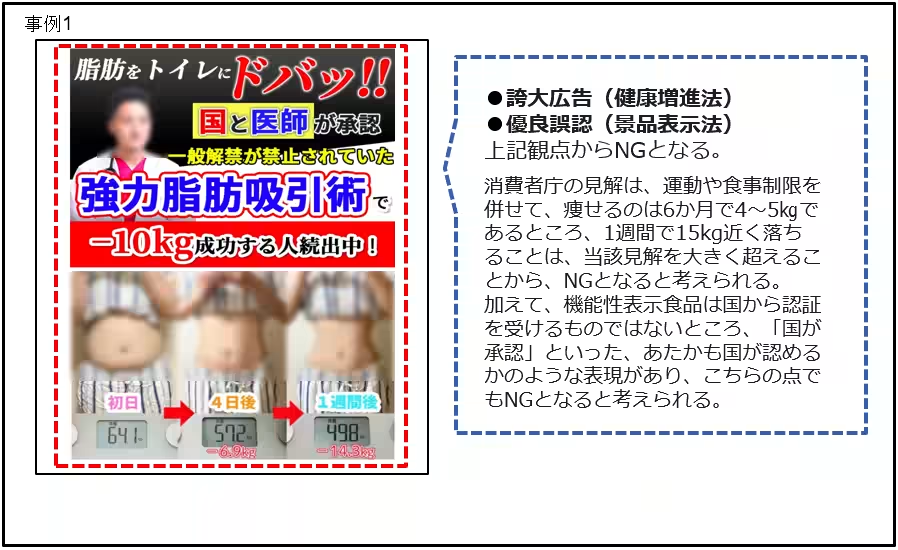
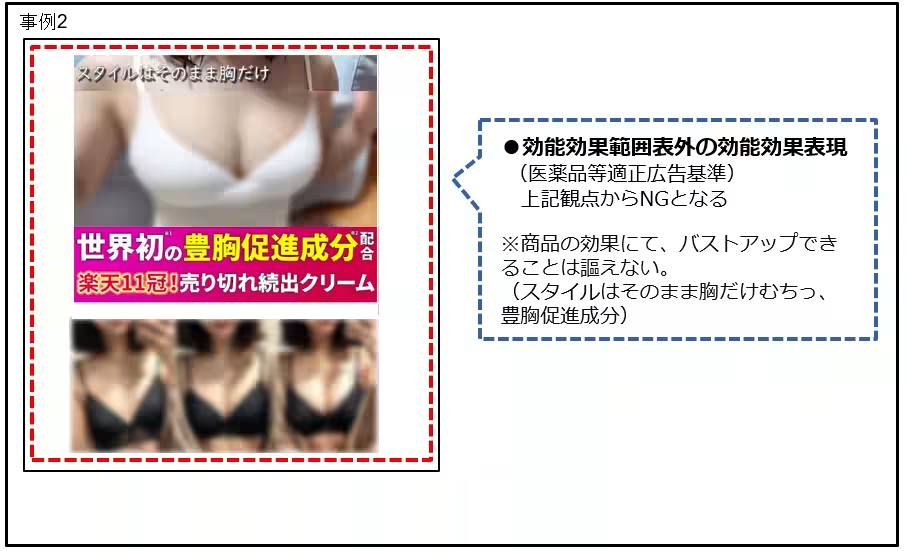
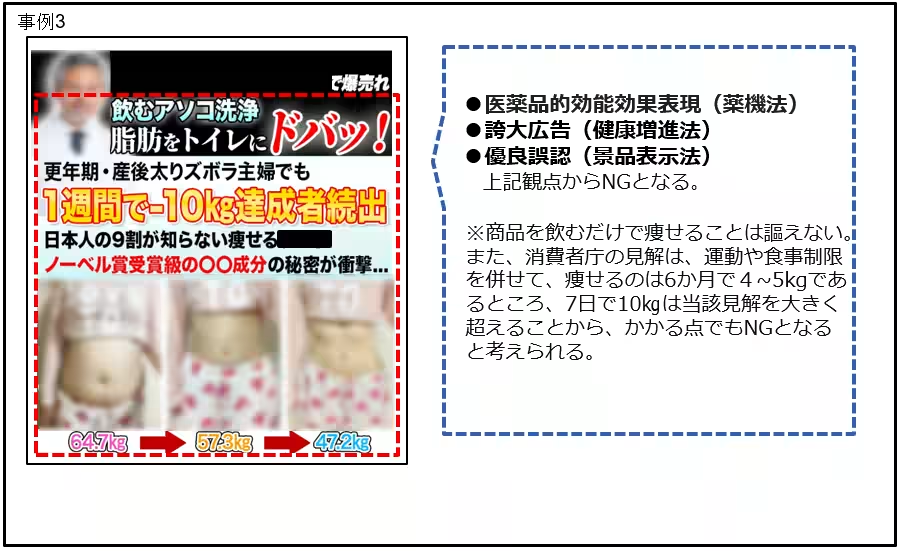
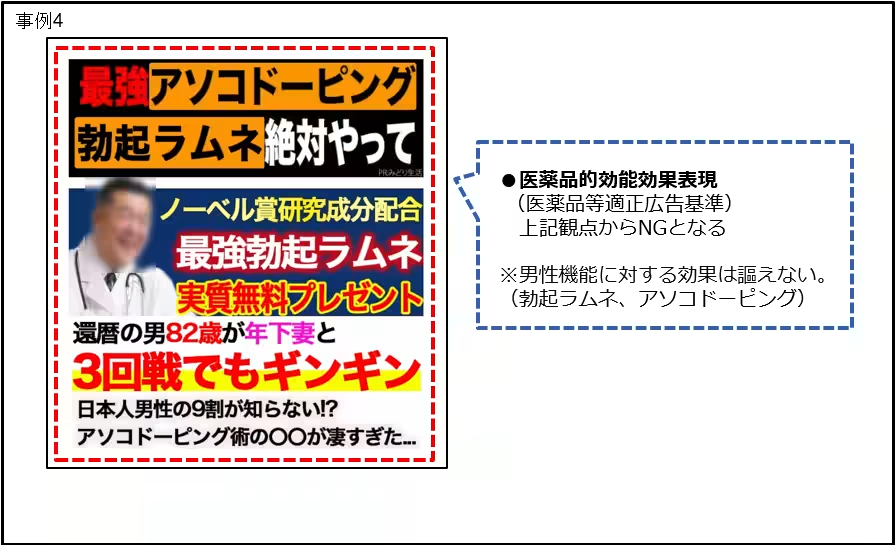
Topics Business Technology)










【About Using Articles】
You can freely use the title and article content by linking to the page where the article is posted.
※ Images cannot be used.
【About Links】
Links are free to use.